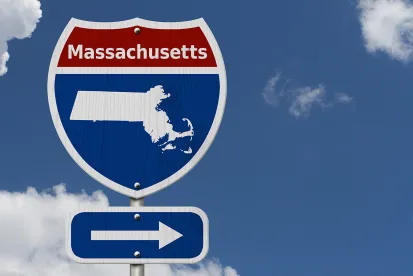On April 14, 2022, in Devaney v. Zucchini Gold, LLC, the Supreme Judicial Court (SJC), the highest court in the Commonwealth of Massachusetts, ruled that the federal Fair Labor Standards Act (FLSA) preempts state remedies under the Massachusetts Wage Act (Wage Act) where the employees’ overtime claim arose solely under the FLSA. Under those circumstances, the employee may not recover treble damages and other Wage Act remedies for the failure to pay overtime wages. With this ruling, the SJC rejected several lower court decisions that had allowed Wage Act remedies for FLSA violations.
The statute can be found here. The opinion can be read here.
Background
The question before the SJC was whether the FLSA’s comprehensive remedial scheme for overtime pay violations precludes employees from alternatively pursuing remedies under the Wage Act, where Massachusetts law does not require overtime to be paid. Employees who work in restaurants, hotels, hospitals, or gasoline stations are exempt from the overtime requirements of Massachusetts law; these exemptions do not exist under the FLSA.
Though the Wage Act and the FLSA bear similarities, they differ in important respects. The Wage Act is generally more favorable for workers than the FLSA. For example, employers who violate the Wage Act are strictly liable and are not allowed to raise a “good faith” defense as with the FLSA. Also, employees are entitled to a mandatory award of treble damages for any lost wages, whereas the FLSA enforcement scheme permits, at most, double damages, and employers may avoid such damages if they can establish they acted in good faith and upon a reasonable basis. Wage Act claims are subject to a three-year statute of limitations, but FLSA actions generally must be brought within the two-year limitations period, except for willful violations, which are subject to a three year limitations period.
Plaintiffs were restaurant employees who were paid a fixed daily rate on weekdays, which was adjusted to one-half the daily rate on weekends when the restaurant was only open for dinner. The fixed rates set by the employer did not account for the number of hours worked. Though the restaurant did not maintain records of the hours worked or wages paid per employee, as required under both federal and Massachusetts law, the parties agreed that the plaintiffs routinely worked considerably more than the requisite forty-hour threshold to qualify for overtime compensation. Plaintiffs filed a lawsuit in the Massachusetts Superior Court alleging that: 1) they were not properly compensated at an overtime rate under the FLSA; 2) that such a FLSA violation by their employer also violated the Wage Act; and 3) that the employer’s actions were violative of federal and state minimum wage laws. After the trial court granted the plaintiffs’ summary judgment motion as to the employer’s liability, a jury trial commenced solely on the issue of damages. The jury returned a verdict in favor of each plaintiff, and the trial judge trebled the damages awards and awarded attorney’s fees and costs pursuant to the Wage Act. The restaurant appealed, and the SJC transferred the matter to itself from the Appeals Court.
Analysis
The SJC concluded that the trial court’s award under the Wage Act for failure to pay FLSA-mandated overtime wages was erroneous. Although the sole basis for liability arose under the FLSA, the trial judge allowed the plaintiffs’ to elect remedies provided under the state law even though the FLSA provides its own remedies.
Accordingly, the SJC concluded that allowing recovery under both the FLSA and the Wage Act in these circumstances created a direct conflict with federal law. The SJC held that where employees’ sole claims for overtime wages rest on FLSA liability, they are limited to the remedies provided under the FLSA, and may not receive treble damages and other remedies pursuant to the Wage Act. As a result, the SJC reversed and remanded the case after concluding that the trial court had improperly instructed the jury on the calculation of actual damages and in awarding treble damages under the Wage Act for overtime claims that arose only under the FLSA.
Takeaways
This decision is important for Massachusetts employers in industries exempt from state overtime laws, as they will not face the mandatory penalties imposed by the Wage Act for overtime violations. However, the SJC’s ruling applies only to employees whose claims for untimely payment of wages arise solely under the FLSA. If an employee’s claims are subject to the Wage Act, they will be entitled to the more generous damages allowed under the state’s remedial scheme – including mandatory treble damages and attorneys’ fees and costs.




 />i
/>i

